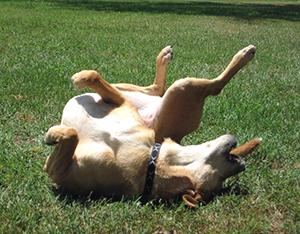This past February, I attended the North American Veterinary Conference in Orlando, Florida. This conference is one of the largest veterinary meetings in the world with over 15,000 attendees. All of the pharmaceutical, nutrition, equipment, and other veterinary industries come together to inform customers about their latest products and services. This year Purina announced the release of a new veterinary diet for dogs to help control epilepsy. To date, there has not been any food-based products that specifically help reduce the incidence of seizures in dogs.
Now there is one!
Managing diseases with prescription diets is not a new phenomenon in veterinary medicine. There are diets to prevent bladder stones, manage diabetes, and treat congestive heart failure. Problems in the brain, however, are much more difficult to medicate with food-based products as they have a difficult time reaching the brain cells. Epilepsy is a problem of repeated seizures, often without a cause, but anti-convulsion medications can help to reduce those seizures. The downside to some of these medications is that there are cases where medications lose effectiveness or there may be harmful side-effects which can reduce the quality of life. While some veterinary conditions have been helped by prescription diets, until now there has not yet been a diet specific for the epileptic patient.
The new veterinary diet for dogs is called Neuro Care (NC), and will be available only through veterinarians starting after March 2017. This diet is specifically made to be high in the medium-chain triglyceride fat which is important in brain cell function. This is a ketogenic diet, meaning it is relatively high in fat to produce ketones which are able to improve brain cell function. In a research study of 21 dogs with ideopathic epilepsy, it was discovered that there was a “modest (13%) reduction in seizure frequency from an average of 2.67 to 2.31 episodes per month (P = .02). However, 48% of [the] dogs had either no seizures or at least a 50% improvement in seizure frequency while on the ketogenic diet as compared with the control diet. Another five (38%) dogs had a less than 50% reduction in seizures, while six (28%) dogs had no response” (Dr. Amy Karon – article linked below). The Neuro Care diet did not interfere with or affect the levels of anti-convulsants in the blood stream, and dogs were fed the diet for 6 months on the study. These dogs did not have any treats or foods other than the Neuro Care. It is important to understand that the food is a treatment, but that it is not replacing medication, rather it is adding another element to reduce seizures. While 13% overall does not sound like much, for those dogs it did help, the reduction in seizures by 50% or more is very significant. These findings are similar to what many drug studies show.
Proper diet is important for maintaining health. Now veterinarians have an additional way to help reduce the devastating effects of epilepsy with a safe and easy to use product – a special diet. The balance of the medium-chain triglycerides is an essential aspect of this diet and not something to try supplementing yourself. If your pet has any kind of health problems, please tell your veterinarian all of the types of food, treats, supplements, and people food you give your pet. While some supplements can be helpful to your dog’s health, even a small bit of the wrong supplement can be harmful to your dog.
Dr. Karen Becker explains about What Causes Seizures in Pets

Reference Article
Ketogenic Diet Linked to Seizure Reduction in Dogs with Epilepsy
Additional Reading:




